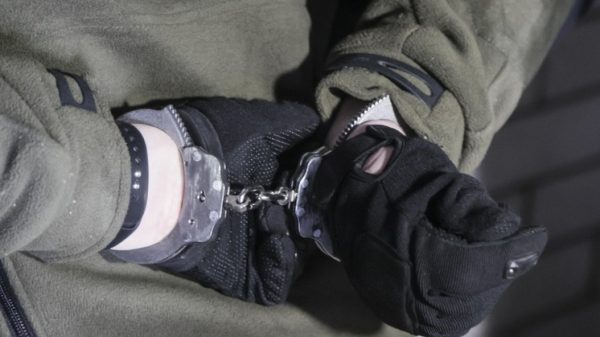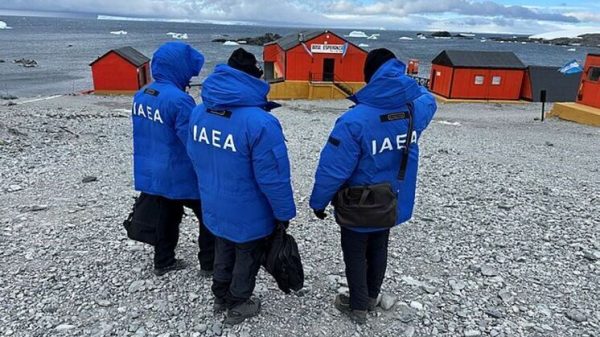The water since used to cool the reactors is highly radioactive and mixes with groundwater
Credit: REUTERS
Japan is reportedly planning to release more than 1 million tonnes of radioactive water from the Fukushima nuclear plant into the Pacific Ocean, a decision that has triggered angry criticism from local fisherman, neighbouring nations and environmental groups.
The government’s advisory panel set up to consider the best way to dispose of the water is meeting later this month and will formally recommend pouring it into the ocean, according to local media.
The panel will call for the water, which is currently stored in hundreds of tanks at the site of the crippled nuclear reactor, to be again put through a process designed to reduce the radioactivity to below legal standards and dilute it with sea water.
In March 2011, three of the seven nuclear reactors at the Fukushima power plant suffered melt-downs after the site was flooded by a series of tsunamis triggered by a magnitude 9 earthquake off the coast of north-east Japan.
The water since used to cool the reactors is highly radioactive and mixes with groundwater in the underground levels of the reactor buildings.
Around 125 tonnes of contaminated water is transferred to vast tanks on the site every day, with Tokyo Electric Power Co (Tepco), the operator of the power plant, estimating that storage capacity will be reached in the summer of 2022.
A number of methods were put forward for disposing of the water, with the government panel narrowing it down to evaporating it into the atmosphere or releasing it into the ocean.
“The decision is clearly unacceptable — the Pacific Ocean must not be used as a dumping ground for nuclear waste”, said Shaun Burnie, senior nuclear specialist for Greenpeace.
“The Japanese government is choosing the cheapest option, not the best option, which is long-term storage”, he told The Telegraph.
Environmental campaigners are particularly concerned about the radionuclides that are likely to still be in the water, particularly as the Japanese government has refused repeated requests for independent testing of the water. The only official data on the contaminants in the water is provided by Tepco.
“The contaminated water contains many radionuclides which we know impact the environment and human health — including strontium-90”, said Mr Burnie.
Workers stand near storage tanks for radioactive water at tsunami-crippled Fukushima Daiichi nuclear power plant
Credit: REUTERS
Tepco initially claimed that the only significant contaminant in the water is tritium, which the company describes as “safe” because it is prevalent in daily life and does not build up in the body.
Documents provided to The Telegraph in 2018 by a source in the government show, however, that efforts to “cleanse” the water of radionuclides to “non-detect” levels have failed to eliminate a cocktail of radioactive elements, including iodine, ruthenium, rhodium, antimony, tellurium, cobalt and strontium.
Tepco subsequently admitted that levels of strontium 90 were more than 100 times above legally permitted levels in nearly 60,000 tonnes of water that had already been treated and were 20,000 times above safety levels set by the government in several storage tanks at the site.
South Korea on Friday indicated that it would consult with other countries in the region to oppose the Japanese government’s plan, saying it placed priority “on the protection of our citizens’ health and safety”.
Residents of north-east Japan are also broadly opposed to the proposal, with the fishing industry particularly concerned that its reputation will take another devastating blow just after it was beginning to recover from the original disaster.
“We are terrified that if even one fish is found to have exceeded the (radiation) safety standards after the treated water is released, people’s trust in us will plummet”, a fisherman from the city of Soma told Kyodo News. ”Our efforts to fight false information and address other challenges could be wasted”.




















































Свежие комментарии